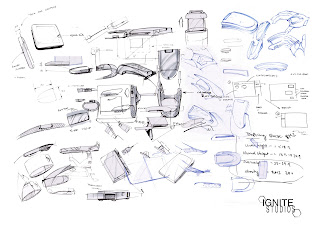Personal transportation has been one of the largest contributors of greenhouse gas emissions; this with combination of electricity generation, industry and agriculture, our planet is in constant stress of depleting sources of biofuels and atmospheric pollution. From observing this problem, great design and engineering have thoughtfully been practiced to address this damage to our earth through greener and emission free automobile.
In 1996, General Motors released to the citizens of America the first mass-produced and purpose-designed electric vehicle of the modern era, the EV1. An invention thought that would change the way urban residents commute to and from work. With an 80% energy efficiency compared to our conventional 20% fuel-efficient car, the EV1 produced absolutely no emissions and grew with a leasing market. Within 10 years, this extraordinary vehicle was then taken off all the roads due to politics over petrol and the continued use of the biofuel car was kept to make more money from petrol.
With our overloading consumption of fossil fuels, we are burning out a grave of air pollution, toxic emissions and drastic climate change, which not only will it be hazardous to human health, but we are destroying the planet that we live on. Though I may not be the most enthusiastic green designer to make a stand for this point, but I believe with our current technology and global status, we have so much potential to be countering our consumption of biofuels. It is such a shame that the people who have power and potential to turn the world into a much more earth conscious and greener place are only looking ahead to make money and not making change. In contrast, it is also very unfair for those who worked hard to make a change and designers and engineers dreaming for wonderful futures have no say for this cause and even the greatest inventions can be come trash, due to the differences of global values.
However, I believe the previous generations have only been strict to tradition and the coming generations who come to take over will be the ones who will make changes. With the growth in technology and design, the world will slowly be submerged into an era of green and earth friendly.



















